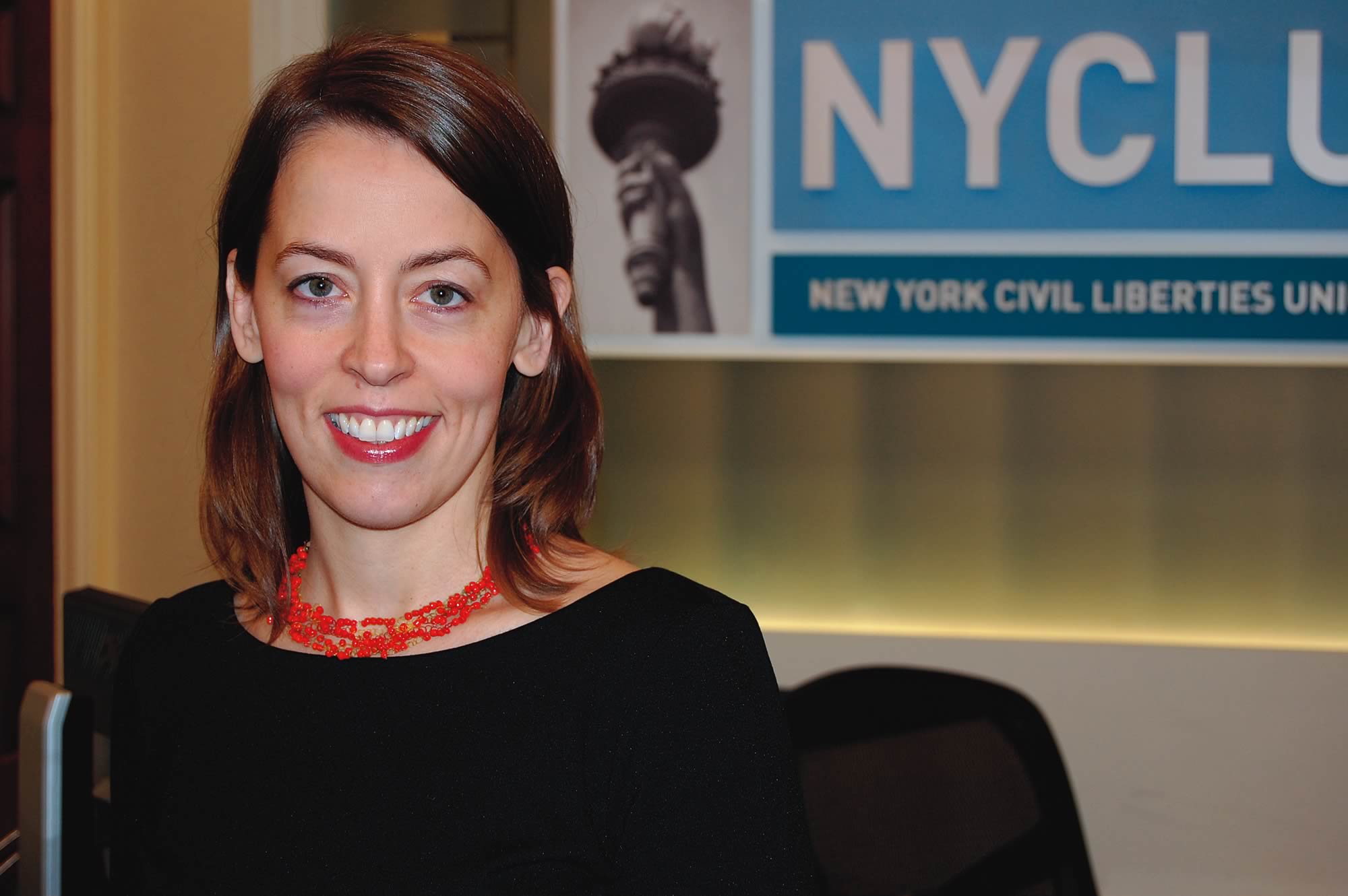In 2007, Corey Stoughton ’02 began a long, serpentine journey through New York courts when she filed a class-action lawsuit on behalf of 20 criminal defendants claiming the state’s public defender system had failed them.
If all goes as scheduled, Stoughton, a lawyer with the New York Civil Liberties Union, will be in an Albany courtroom in March, when the case finally goes to trial. The stakes in Hurrell-Harring, et al. v. State of New York are high: It’s the first time a state’s entire indigent defense system is standing trial for providing ineffective assistance.
To Stoughton, the landmark case is about whether New York will “stand up and fulfill the mandate” established by the U.S. Supreme Court in 1963 in Gideon v. Wainwright, namely, that the Sixth Amendment requires states to provide counsel to indigent defendants facing serious criminal charges.
“The state has abdicated its responsibility to set up a system to provide lawyers to poor people by passing the buck to county governments without any meaningful support for those governments or oversight to make sure indigent defendants are getting good representation,” Stoughton says.
In seeking to dismiss the lawsuit, the state’s lawyers argued that the ineffective assistance of counsel claim should be litigated individually in each case and that the civil suit could interfere with those ongoing proceedings.
After clerking for a year and working in an employment civil rights firm and the ACLU’s national office, Stoughton joined the NYCLU in 2004, where she’s done everything from First Amendment cases to immigrants’ rights cases. But in the seven years since a report by New York’s former chief judge critical of the state’s indigent defense system prompted Stoughton and her NYCLU colleagues to file suit, she has devoted more than half of her time to the case.
She’s been assisted by a team of dozens of lawyers at Schulte Roth & Zabel, who have committed more than 20,000 hours to the case and absorbed more than $500,000 in expenses, says Daniel Greenberg, the former director of Harvard Law School’s clinical programs who now oversees the firm’s pro bono program.
But Greenberg, who will be in the courtroom leading the trial team along with Stoughton for what is expected to be a six- to eight-week trial, says that she has spearheaded the effort from the beginning. “She has been the lifeblood of this lawsuit,” Greenberg says.
